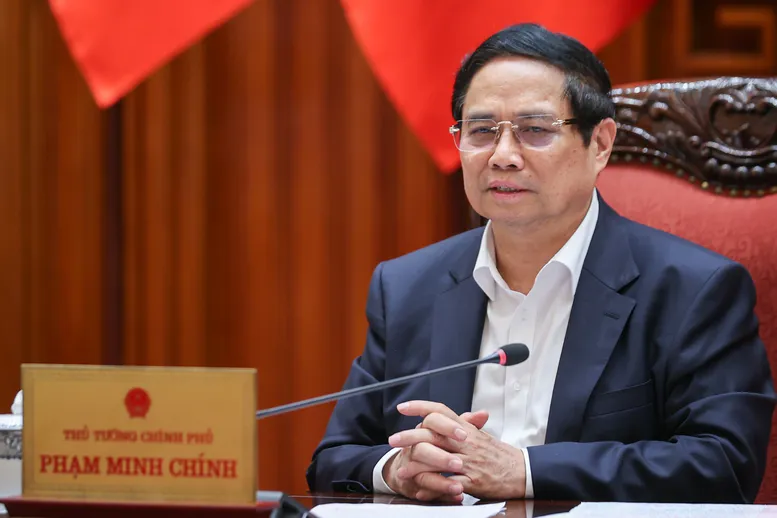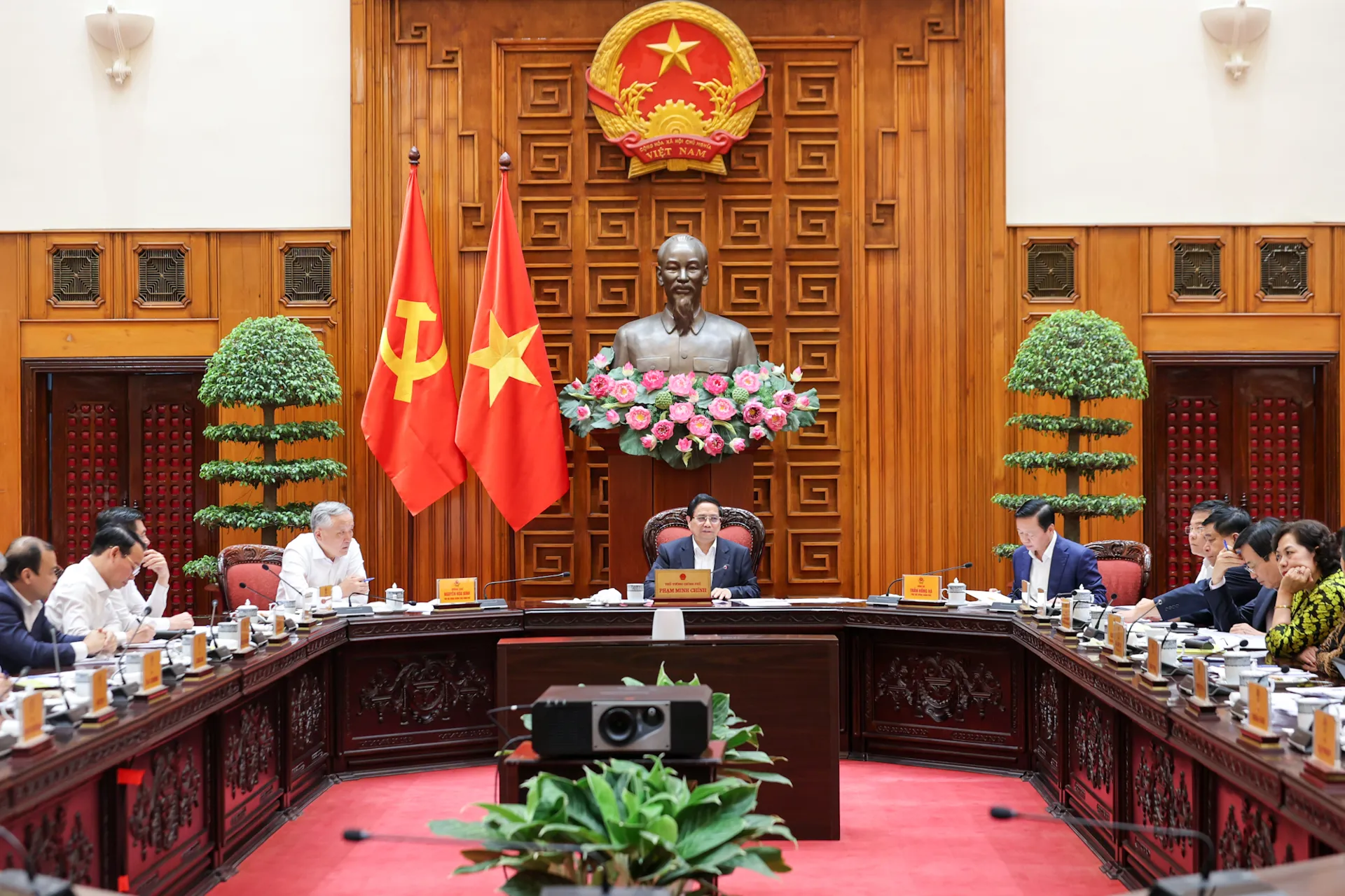As US tariffs loom, PM urges support for people, businesses
Government agencies and local authorities are instructed to prevent job losses and to identify vulnerable labor groups, especially in the textile, footwear, furniture, and seafood industries.
Prime Minister Pham Minh Chinh has ordered the immediate formation of a negotiating team to engage with the United States on tariff issues and called for swift support for businesses and citizens affected by new trade policies.

Prime Minister Pham Minh Chinh at the meeting in Hanoi on April 10. Photos: VGP
The directive came as Chinh chaired the fourth meeting of government leaders on April 10 to discuss the potential impact of the US tariff move. The meeting followed President Donald Trump's announcement of a 90-day delay in imposing steep reciprocal tariffs on dozens of trading partners, including Vietnam. An interim 10% tariff is currently in place.
“This is also an opportunity to restructure the economy toward green growth, digital transformation, and sustainable development,” the PM said.
He called on businesses to accelerate technology adoption, diversify markets and supply chains, and deepen integration into global value chains.
The government will prioritize measures to keep businesses operating, support their transitions, and address both short- and long-term challenges. Support policies must be well-resourced and clearly defined.
"Solutions must be swift, timely, and consistent. What needs to be done now needs to be done immediately, and longer-term tasks should be tackled step by step," he said.
Chinh ordered ministries to urgently propose tax and fee relief measures for submission to the May session of the National Assembly. The Ministry of Finance was instructed to review public investment plans, punish wasteful spending, and speed up disbursements to inject momentum into the economy and create jobs.

Top government leaders at the meeting in response to US tariffs on April 10.
The State Bank of Vietnam will continue to stabilize the exchange rate, ensure sufficient foreign exchange reserves, and work towards lower interest rates. The banking sector is expected to roll out preferential credit packages, including a VND500 trillion ($19.4 billion) fund focused on infrastructure, technology, and domestic consumption.
Chinh also set a goal of reducing business costs and regulatory hurdles by at least 30% and increasing decentralization. He urged more effective use of Vietnam's 17 existing free trade agreements (FTAs) and the opening of new markets such as the Middle East, Eastern Europe, Egypt, and South America.
Vietnam and the US have agreed to launch negotiations on a reciprocal trade agreement, which will include tariff discussions. Chinh called for a negotiating team with the US led by Minister of Industry and Trade Nguyen Hong Dien to be set up soon.
The team will develop negotiation scenarios and strategies based on the principle of "maximizing national interests while ensuring balance and risk sharing." Chinh emphasized that efforts must be consistent with Vietnam's broader foreign policy and avoid disruptions to its 17 free trade agreements covering over 60 markets.
Vietnam will also seek to address US concerns about trade practices, including rules of origin, non-tariff barriers, and intellectual property rights. At the same time, it will expand trade with several partners, including the US, in sectors such as aviation, liquefied natural gas, and defense.
“Solving one issue must not create another. Engagement with one partner must not affect relations with others,” Chinh said.








